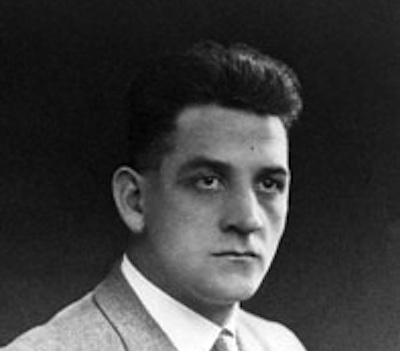
By Jim Gibney (for Irish News)
Why are Irish people still fascinated with Frank Ryan despite the fact that he has been dead since 1944, nearly 70 years ago?
That was the question posed by Fearghal McGarry, the researcher on the new film, The Enigma of Frank Ryan, which was shown at the QFT in Belfast last Thursday.
McGarry joined a panel, which included the film’s director, Des Bell, and the historian Tom Hartley to discuss the film and the significance of Frank Ryan’s legacy to the people of this country.
The answer to McGarry’s question emerged in the course of the debate with the panel and audience about Ryan’s short, yet dramatic and controversial life and death.
He died when he was 42 in 1944 in Berlin. He had been there at a time when Hitler’s war machine appeared unstoppable in its march to dominate Europe.
The 1930s was a fraught decade with the Depression spawning poverty, desperation and hopelessness, rearmament in Germany, and the rise of movements of the left and the right.
The 1930s witnessed the rise of fascism in Germany, Italy and Spain; the Soviet Union show trials, purges and executions by Stalin of those he considered a threat; executions that seriously debilitated the USSR’s capacity on the eve of the Second World War and potentially threatened the war’s outcome.
In Ireland Eamon de Valera and Fianna Fail came to power (with the help of the IRA) as the leading political force from the ruins of the civil war and with a promise to lead the struggle for a united Ireland.
It became clear very quickly de Valera had other plans which included jailing republicans like Frank Ryan and, in time, executing others.
As a teenager Ryan joined the IRA and fought on the republican side during the civil war and was wounded and interned.
He was devoted to the Irish language and taught it alongside his IRA work which saw him progress through its ranks to a very senior position.
His progressive views led him, with Peadar O’Donnell and George Gilmore, to setting up the Republican Congress, a left-wing organisation, which resulted in the IRA expelling him.
In Ireland, he opposed the fascism of the Blueshirts and, internationally, Spain’s Franco. He led the ‘Connolly Column’, to defend the democratic republic alongside others in the International Brigades against Franco’s nationalists. He was seriously wounded, was arrested and sentenced to death. The sentence was commuted to life in prison.
Ryan was handed over by the Spanish fascists to the German fascists who brought him to Berlin where he met another senior IRA man, Sean Russell, who was seeking help from the Germans as part of the IRA’s armed campaign against the British.
Ryan and Russell were transported home to Ireland in a German submarine but Russell died on board and Ryan returned to Berlin where he too died unexpectantly from illnesses picked up in Burgos prison.
With a history like that it is entirely understandable why Irish people would be interested in Ryan. He was a fascinating and important republican leader.
He embodied the essence of republicanism with its emphasis on liberty, fraternity and equality. His twin beliefs in Irish independence and socialism marked him out, with others, from his generation. His selflessness and death in Berlin, far from his homeland and the people who loved him, reinforced his profound loyalty to the republican cause.
Des Bell, in his dramatisation of Ryan’s life, handles all of these elements with due care and consideration: Ryan as a lover, a man of action, a writer, an internationalist but above all else a servant in the long cause of Ireland’s struggle for independence.
I met many Frank Ryans over the past 40 years in the republican movement. Some died, many went to prison and others willingly risked life and liberty for freedom.
The film raises issues, universal and local, such as the south’s neutrality during the Second World War; Ryan’s relationship with fascist Germany; the use of armed struggle; left-wing republicanism.
But the film is about Frank Ryan, the charismatic republican leader, who uses his undoubted talents, in the first instance, in the service of Ireland and its people and then in the global struggle for democracy and justice.
![[Irish Republican News]](https://republican-news.org/graphics/title_gifs/rn.gif)
![[Irish Republican News]](https://republican-news.org/graphics/title_gifs/harp.gif)

